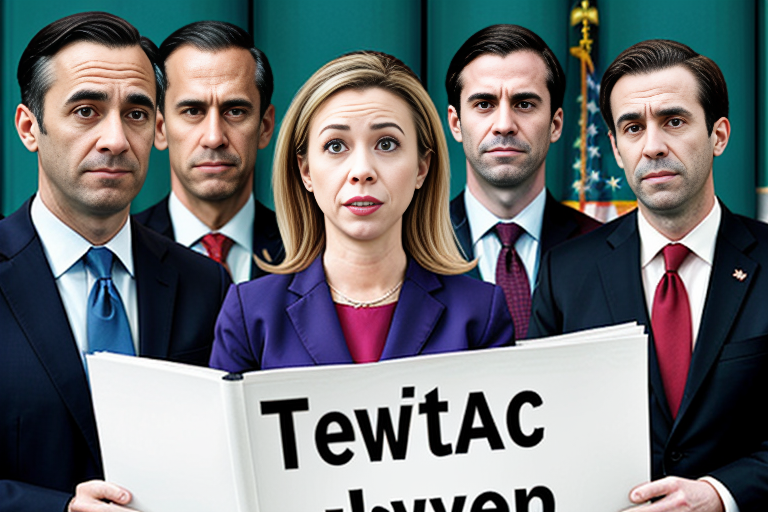A shocking trend has emerged in which top law firms have been mysteriously afflicted with a rare condition known as "existential dread" and can no longer be bothered to challenge the Trump administration's policies. As a result, small- and medium-sized firms are now shouldering the burden of defending the Constitution, despite having fewer lawyers and less resources than their larger counterparts.
According to an analysis by The Washington Post, large law firms have been far less likely to take on cases challenging Trump's executive orders in his second term, with only 15 percent of such cases being handled by these behemoths. This is a stark contrast to the first term, when 75 percent of similar cases were brought by the big boys.
"It's not that we don't care about the rule of law," said one partner at a large firm. "It's just that our golf game has really been suffering lately, and we can't seem to find any decent caddies who aren't also litigators."
In response to this sudden dearth of willing participants in the fight against tyranny, smaller firms have been forced to take on an ever-increasing workload. They're like the lawyers equivalent of postal workers, but instead of just delivering mail, they're fighting for human rights and trying to keep the government from completely destroying the country.
"It's a nightmare," said Eve Hill, a partner at the Baltimore outfit Brown, Goldstein & Levy. "We have people begging us to take their cases, saying 'I'm going to lose my job and my home. ... I'm going to lose my family.'" Hill's firm has only 20 attorneys, which is roughly the same number of lawyers as there are participants in a typical game of dodgeball.
Meanwhile, the Trump administration remains committed to its policies, despite being sued by virtually every civil rights organization and several states. When asked for comment, a Justice Department spokesperson said simply, "We're going to keep on doing what we're doing, because it's working so well."
In related news, the American Bar Association has reported that it's having trouble finding lawyers willing to represent them in court. This is probably because most of them have already given up and are now working at Starbucks as baristas.
